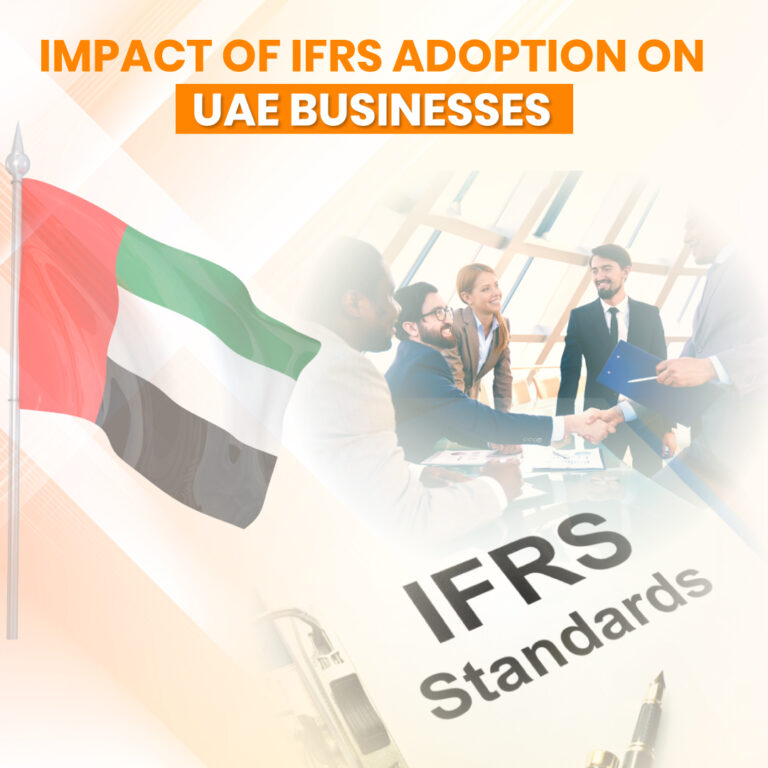“IS IFRS THE GAME-CHANGER FOR UAE BUSINESS SECTOR?”
IFRS implementation in the UAE has become a mandate for all businesses and organizations; the UAE has completely adopted these international financial reporting standards for its own betterment. How supportive businesses, employers, and professionals are about it shows that the impact of IFRS adoption on UAE businesses is quite positive. It has become essential for companies in the region to follow IFRS standards, which leads to the need for finance professionals to remain well-trained with expertise to implement these reporting standards; professionals are then attracted to the popular IFRS certification in Dubai.
The IFRS standards ensure that the financial statements or reports of a business remain transparent, accurate, comparable, and consistent; all these qualities are beneficial to grow the business. Therefore, it is safe to say that adopting IFRS in the UAE not only increases the profitability of a business but also helps in expanding it further, locally as well as internationally, by attracting investors. There are many other ways these global reporting standards have been influencing the business landscape; to know them, read the blog ahead.
IMPACT OF IFRS ADOPTION ON UAE BUSINESSES:
The following are the positive impacts of implementing IFRS in the UAE’s business sector: understanding how it helps the business landscape grow stronger.
1: ENHANCED TRANSPARENCY & COMPARABILITY:
These reporting standards are well-known for the transparency and comparability they offer; transparency is the most in-demand factor, especially in the finance sector. These IFRS reports are quite clear and showcase perfect uniformity in financial reporting; through these standards, global companies can follow the uniform reporting standards. This uniformity makes it easy for investors and regulators to efficiently understand and compare the financial statements of UAE businesses with international competitors. Not only this, but the transparency of the financial statements also contributes to enhancing accountability and corporate governance.
2: INCREASED FOREIGN INVESTMENTS:
As the financial reports are ensured to be transparent and clear through IFRS implementation in the UAE. It attracts increased numbers of global investors as they are more confident in working with a company that complies with IFRS standards. These standards make cross-border mergers, listings, and acquisitions much easier, which are appreciated by global investors; hence, businesses in the UAE can get a chance of expansion with the help of international investors.
3: STRENGTHENED FINANCIAL INSTITUTIONS:
Not only the business landscapes but the IFRS implementation in the UAE also improves or strengthens the financial institutions, such as banks and insurance companies. These institutes become stronger with the accurate valuation of liabilities and assets, as well as efficient risk management through fair value accounting. It won’t be wrong to say that these global financial reporting standards not only positively impact the business sector but also the financial sectors in the UAE as well.
4: IMPROVED ACCESS TO CAPITAL:
It becomes much easier to raise funds globally for the companies that follow IFRS standards, as they are accepted globally by banks & stock exchanges, which eases business expansion as well as financing. In short, with the help of these reporting standards, companies might have to face a lower cost of capital.
CONCLUSION:
Indeed, IFRS implementation in the UAE has proved to be quite value-adding for the business landscape; these global reporting standards somewhat help in leading companies towards expansion and growing profitability. Many foreign investors are attracted to businesses that follow international financial reporting standards in the UAE, which gives the company a chance to grow. Amongst several positive impacts of adopting IFRS on business sectors, some of the popular impacts are enhanced transparency & comparability of financial statements, strengthened financial institutions, increased foreign investments, etc.
FREQUENTLY ASKED QUESTIONS (FAQs)
Q1: What are the challenges of implementing IFRS in the UAE?
Ans: The challenges or negative effects of adopting IFRS in the UAE are: implementation costs, complexity & subjectivity, cultural regulatory adjustments, etc.
Q2: Is it mandatory for businesses and companies in the UAE to follow the IFRS?
Ans: Yes, it is mandatory to follow the global financial reporting standards in the UAE, as it is also a hub for many multinational organizations and foreign businesses. To have smooth and clear financial statements, it becomes essential to follow the IFRS.
Q3: Where can I take the IFRS certification in Dubai?
Ans: There are many reliable local as well as international institutes available that offer IFRS certification in Dubai; students can choose between the online and onsite learning path, and begin their learning journey.





